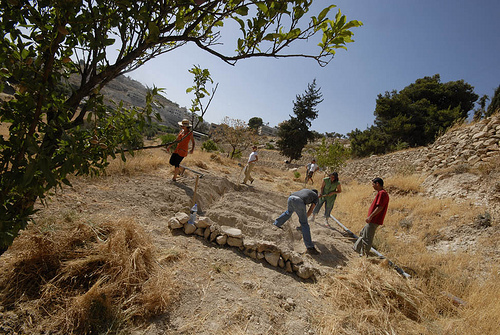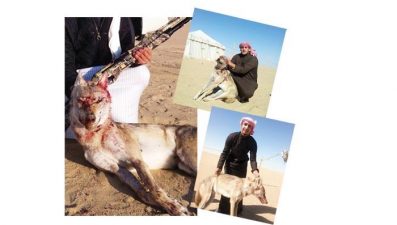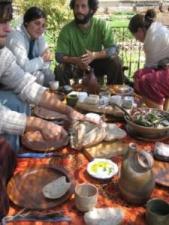 Although Palestinian environmental activism is clearly on the rise, Palestinians still face a myriad of environmental and social challenges.
Although Palestinian environmental activism is clearly on the rise, Palestinians still face a myriad of environmental and social challenges.
These issues often have both ecological and political aspects; the current water shortage, for instance, is influenced both by global climate change and Israel’s policies in the West Bank.
This past year, a team of four British environmentalists came together to address these problems at all levels.
In February 2008, Steve Collings, Tom Fernley-Pearson, Alice Gray and Nick Marcroft established Bustan Qaraaqa, a revolutionary new educational permaculture farm and eco-guesthouse in the West Bank.
In June, the Bustan Qaraaqa team opened their facility in Beit Sahour, near Bethlehem. It consists of both an eco-guesthouse for both visitors and volunteers, and 12 dunams (4 acres) of farmland for teaching permaculture. Currently, the site boasts a greywater recycling system, composting bays, a composting toilet, a series of swales (irrigation ditches) across the valley floor and the beginnings of a rainwater-collecting cistern.
The team reports that they have hosted over 55 guests from all over the world.
Bustan Qaraaqa, which means “Tortoise Garden” in Arabic, represents these activists’ desire to build a grassroots environmental movement in the Palestinian Territories. The aim of the project is to
“create a model permaculture farm with the aim of propagating a grassroomts permaculture movement to help address the humanitarian and environmental problems facing the Palestinian people, and to create an international movement calling for environmental justice for the Palestinians.”
The Bustan Qaraaqa team believes that permaculture, a style of agriculture intended to utilize renewable resources and a self-sustaining ecosystem, can help Palestinians address some of their most urgent environmental and social challenges.
Water for irrigation is scarce and prohibitively expensive, for instance, but permacultural techniques can allow families to recycle household wastewater to grow crops. Palestinians face soil fertility and solid waste problems, but a community composting scheme could both address the solid waste problem and create valuable organic fertilizer for growing food.
Perhaps most importantly, the project is intended to empower Palestinian people and communities. “It’s about community empowerment,” said Nick in a June 17 interview. “To give individuals the confidence to change the environment in which they live. When a community is empowered, it doesn’t need to rely solely on party politics [to come to their aid].”
Bustan Qaraaqa has a plethora of community initiatives, environmental education projects, and international outreach planned for the coming months, in addition to the continued growth of their permaculture model.
For more information, to make a reservation at the guesthouse, or to get involved visit http://www.eag-palestine.org/bustan.html or their blog at http://greenintifada.blogspot.com
Photos: Bustan Qaraaqa and Environmental Workshops





4 thoughts on “Bustan Qaraaqa: Permaculture and Empowerment For Palestinians in the West Bank”
Comments are closed.